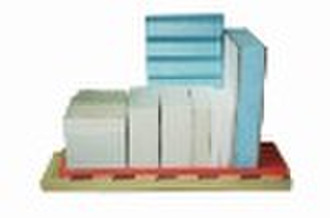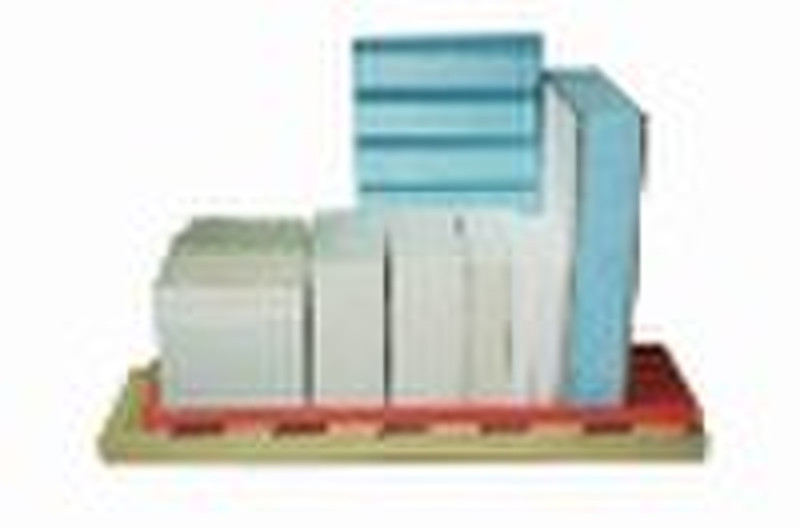Каталог
-
Каталог
- Автомобили и мотоциклы
- Безопасность и защита
- Бизнес
- Бытовая техника
- Бытовая электроника
- Детали машин и услуги по их изготовлению
- Дом и Сад
- Здоровье и медицина
- Игрушки и хобби
- Изделия из металла
- Измерительные и анализирующие приборы и инструменты
- Инструмент
- Красота и личная гигиена
- Мебель
- Мероприятия по охране окружающей среды
- Минералы и металлургия
- Модные аксессуары
- Обувь и аксессуары
- Одежда
- Освещение
- Подарки, сувениры
- Продовольственные товары и напитки
- Промышленное оборудование и техника
- Резина и пластмассы
- Сельское хозяйство
- Специальное оборудование
- Спорт, отдых и досуг
- Сток
- Строительство и недвижимость
- Текстиль и кожа
- Телекоммуникации
- Товары для офиса, учебы. Канцтовары
- Транспорт
- Упаковка и печать
- Химикаты
- Часы, Украшения, Очки
- Чемоданы, сумки
- Электронные компоненты, оборудование, принадлежности
- Электротехническое оборудование и принадлежности
- Энергия
Filters
Search

Изоляция Совет-XPS Пена Лист

David Xu
Контактное лицо
Основные данные
PLASTECH is a famous manufacturer specializing in complete XPS Thermal Insulation FoamSheet Extrusion Lines. Thermal Efficiency (Insulating power) The thermal efficiency of an insulating material is expressed as R-value. R is the materials resistance to heat flow. The higher the R-value, the greater the insulating power. The insulating power of many rigid foam boardstock products relies in part on the hydroflo fluorocarbons used in the blowing agent system. Permeation of air into the board can affect the R-value of the insulation. For accurate comparisons of long-term insulating performance (LTTR) it is important to obtain long-term aged R-value data from all insulation product manufacturers. Compressive Strength The closed-cell structure of XPS imparts excellent long-term strength and durability. Products are available in a range of compressive strengths to suit varied application needs. Moisture resistance A critical factor affecting long-term performance is the ability of an insulating material to resist the intrusion of moisture. Moisture can come in contact with insulation not only during construction, but throughout the life of the building. If absorbed, its effect is to drastically reduce thermal efficiency (R-value). The closed-sell structure and lack of voids in XPS helps the foam to resist moisture penetration better than other types of insulating materials. The excellent moisture resistance of XPS foam insulation has been confirmed repeatedly and consistently in laboratory tests and under field use conditions. Mold, Mildew, Corrosion resistance Because XPS foam is essentially a plastic material, it will not corrode or rot or support the growth of mold or mildew. It is resistant to microorganisms found in soil and provides no nutrient value to vermin. These properties make it an outstanding insulating material for below grade applications. Solvent Effects XPS is resistant to many types of chemicals. However, petroleum-based solvents will attack the foam. Exercise caution when working with solvent-based materials. If you have an issue, be sure to contact the sponsoring manufacturers for more information. Outdoor storage Exposure to ultraviolet radiation in sunlight for several weeks may cause the surface of XPS foam to become yellow and dusty. This will have no measurable effect on the insulating value. However, an opaque protective covering should be used during outdoor storage, particularly for extended periods. Service temperature Use of XPS foam is not recommended where sustained temperatures exceed 165º F. Do not use in direct contact with chimneys, heater vents, steam pipes or other such surfaces. Intermittent heat exposure during installation and use should not exceed 180º F. Flammability Like many construction materials, XPS is combustible. It should not be exposed to flame or other ignition sources. XPS insulation should be covered with a thermal barrier or otherwise installed in accordance with applicable building codes.
Условия поставки и упаковка
Packaging Detail: Transparent plastic bag for packing Delivery Detail: PTS135-150:180-200m3/24h,PTS150-200:300-320m3/24h
Условия оплаты
Аккредитив
Электронный перевод
-
Способы оплаты
Для оплаты товаров и услуг на нашем портале, Вы всегда получаете счет, в котором Вам необходимо самостоятельно указать свои данные.
Мы принимаем к оплате:








